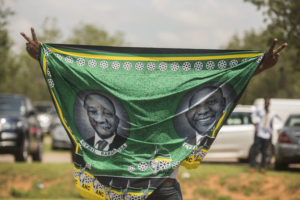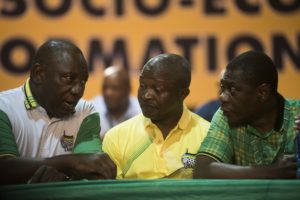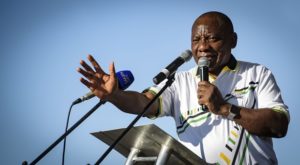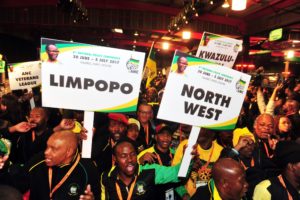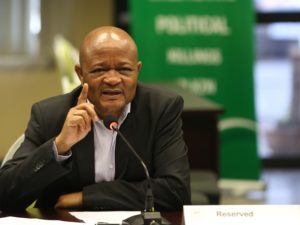Zuma vs Ramaphosa: the new cold war
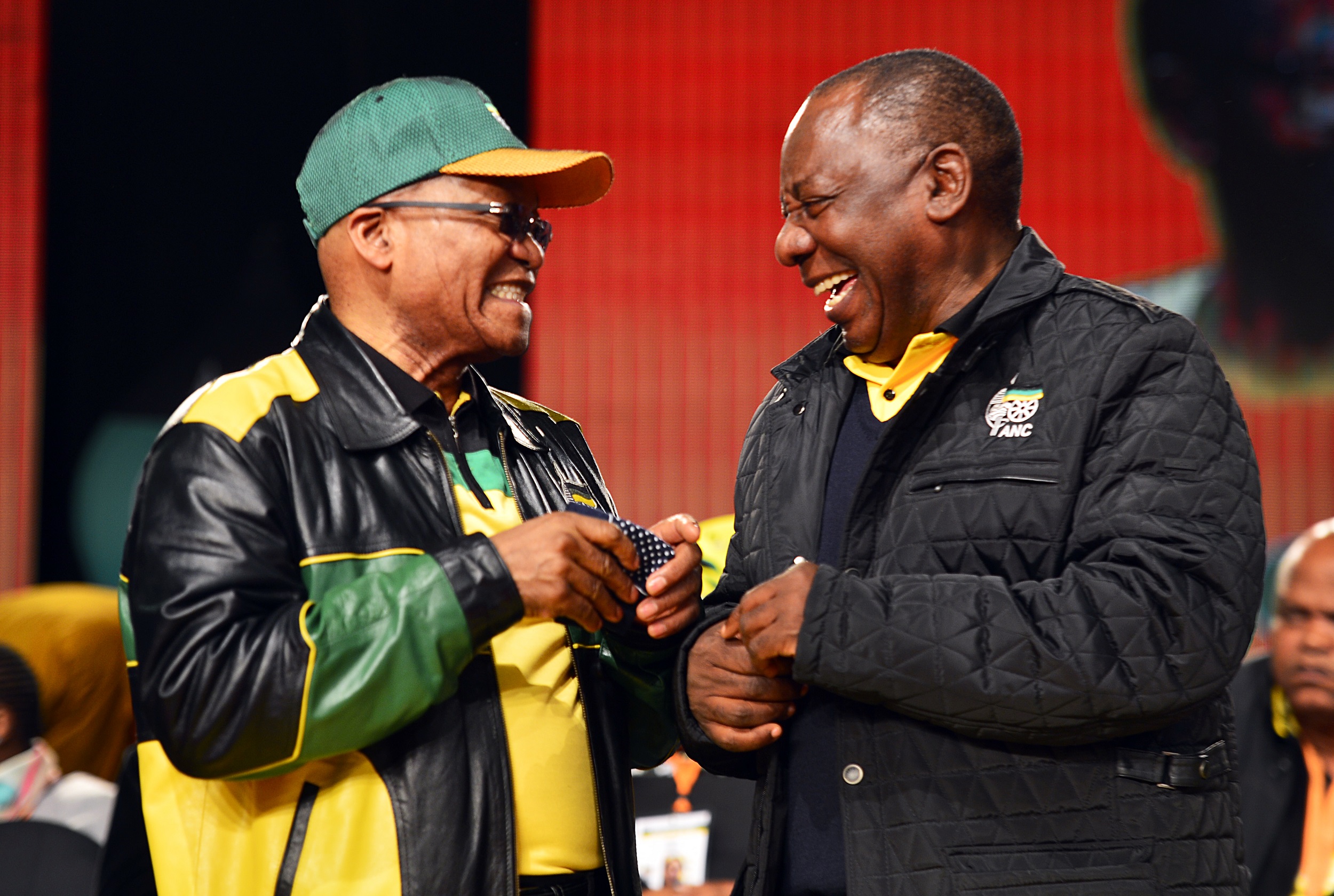
JOHANNESBURG, SOUTH AFRICA – JULY 01: President Jacob Zuma and his deputy Cyril Ramaphosa during the African National Congress (ANC) 5th national policy conference at the Nasrec Expo Centre on July 01, 2017 in Johannesburg, South Africa. The conference is a gathering of about 3500 delegates from branches across the country to discuss the party’s policies going into the elective conference in December, where changes and new policies will be ratified. (Photo by Gallo Images / City Press / Muntu Vilakazi)
South Africa’s relationships with Russia and the United States have taken centre-stage as the battle for the ANC presidency in December took an ugly turn.
Deputy President Cyril Ramaphosa’s supporters believe he could be charged with treason any day now, with charges relating to his ties to American business and his alleged plans to cut off Russia as a close ally if he becomes president.
On the other hand, the Zuma camp, who champions Nkosazana Dlamini-Zuma for the ANC presidency, believes Ramaphosa is behind the FBI’s sudden interest to investigate the Guptas – and by implication the Zumas – for allegedly washing dirty state capture money through a family firm in America.
The FBI’s investigation has “deeply unsettled” the Dlamini-Zuma camp and Ramaphosa is said to be “outraged” over outlandish claims that he has been captured by the Americans. In the middle of it all is a R1 trillion nuclear deal which, economists say, will bankrupt the country.
Zuma’s own proximity to President Vladimir Putin and Russia is no longer in doubt. The Sunday Times’ revelation on Sunday that Zuma, new Energy Minister David Mahlobo and Zuma’s aide George Moloisi met senior Putin securocrats before last week’s Cabinet reshuffle confirms what has been suspected for a long time: that Zuma has promised Putin the deal and there is no turning back.
The newspaper reported that Zuma was “shit scared now because he realises the Russians are not playing”.
Zuma and Putin have had numerous meetings, the opaquest of which happened in August 2014 after Zuma’s food was allegedly laced with toxin by his estranged wife, Nompumelelo Ntuli-Zuma.
Only Mahlobo, then state security minister, and Nomaindia Mfeketo, the deputy minister of international relations and cooperation, accompanied Zuma on this trip, on which he met his counterpart at Putin’s official residence, Novo-Ogaryovo.
It was reported at the time that Zuma went to Putin to receive medical treatment, as he did not trust American doctors (where he fell ill, during an official state visit).
Mahlobo, who has been trained in Russia as intelligence minister and is apparently trusted by that country to push through the nuclear deal, will now oversee the transaction in his new portfolio. He has allegedly been telling people that he can push the deal through in three months.
This is fairy tale stuff; Mahlobo must know something we don’t. Judge Lee Bozalek from the Western Cape High Court cancelled the deal in April and ordered the state to start the process from scratch. This set the nuclear transaction back by months (Bozalek may yet have saved South Africa; future generations will thank him for this).
The Russians are obviously annoyed and the thought that last week’s visit by Putin’s strongmen forced Zuma’s hand into reshuffling his cabinet is frightening beyond belief.
This essentially means Zuma has been captured by the Russians and is no longer the sovereign ruler of South Africa. He simply must get Finance Minister Malusi Gigaba to sign the government guarantee to purchase nuclear before he leaves office.
Why is Zuma so desperate to conclude the nuclear deal with Russia’s Rosatom? Besides the fact that he apparently views this as his legacy (if bankrupting an entire generation can count as a legacy), senior government and ANC officials have been speculating for months that money has already been paid by Moscow to secure the deal.
The involvement of Mahlobo’s previous portfolio in facilitating the transaction is part of the conspiracy.
And although there is currently no proof of bribes having been paid to land Rosatom the deal, Zuma’s desperate measures to force the transaction through are telling.
Enters Ramaphosa.
It is widely accepted in the ANC that if Ramaphosa (or Zweli Mkhize, for that matter) wins in December, Zuma could be out as state president by January. Ramaphosa is on the record as saying we will only procure nuclear if we can afford it and that the tender process will be transparent.
Gigaba repeated this sentiment in an interview with CNN last week.
This means Zuma has 70 days until 1 January to make sure the nuclear deal goes through.
Could this be the reason behind the Ramaphosa camp’s firm belief that he will be fired one of these days? Is he (and possibly Gigaba) the last obstacles in getting ink on paper?
I struggle to see how his purchase or sale of McDonald’s SA amounts to treason, or why Ramaphosa would or could suddenly cut all diplomatic ties with Russia if he becomes the country’s next president. But stranger things have happened in South Africa, as Pravin Gordhan will tell you.
– Adriaan Basson is editor of News24. Follow him on Twitter.
(Photo credit: Gallo Images / City Press / Muntu Vilakazi)
